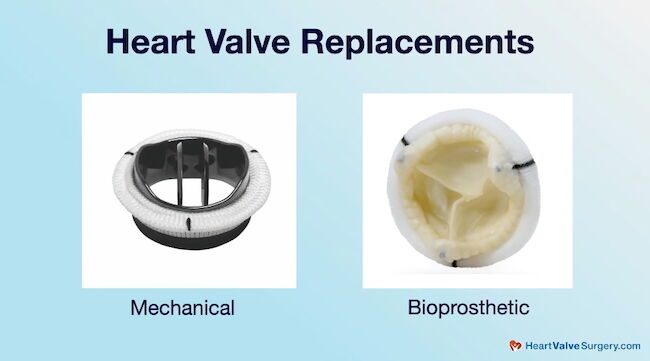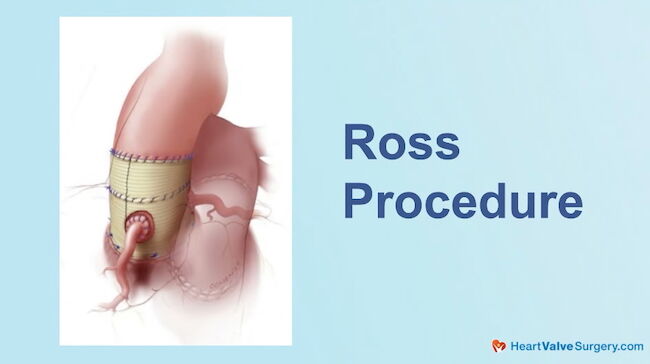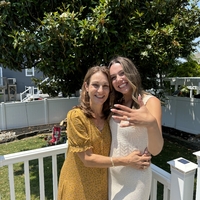Surgeon Q&A: Evaluating Mechanical Valves, Biological Valves & The Ross Procedure
Written By: Allison DeMajistre, BSN, RN, CCRN
Medical Expert: Craig Baker, MD, Chief of Cardiac Surgery, Keck School of Medicine, USC, Los Angeles, California
Reviewed By: Adam Pick, Patient Advocate, Author & Website Founder
Published: December 1, 2025
Patients diagnosed severe aortic valve disease have several options for treatment. The primary choices for intervention include a mechanical valve, a tissue valve or the Ross Procedure.
To learn the pros and cons of each approach, we met with Dr. Craig Baker who is the Chief of Cardiac Surgery at the Keck School of Medicine at USC in Los Angeles, California. During his extraordinary career, Dr. Baker has performed over 5,000 cardiac surgeries with a principal focus on heart valve replacement procedures.
Pros and Cons of Mechanical Valves, Biologic Valves & The Ross Procedure
Here are the key insights shared by Dr. Baker:
- It’s essential to consider the patient and not simply the procedure. “I think when we talk to our patients in the clinic, we’re not just thinking about the operation they’re going to have,” said Dr. Baker. “We’re thinking about that patient’s whole life, what their life expectancy is, and what their quality of life is going to be. Certainly, if you’re 70 or 80 years old and I can put a tissue valve in you and expect one operation to last your whole life, then it’s simple and a great solution.”
- Younger patients may consider a mechanical valve. “Let’s talk about the younger patient,” said Dr. Baker. “Consider someone who’s 20 to 50 years old that, for whatever reason, has aortic valve disease and needs a replacement. Mechanical valves are great options, and in the absence of infection, they can potentially last a lifetime.”

- The use of life-long anticoagulants is critical for patients to consider before selecting a mechanical valve. “There is a requirement to take some form of anticoagulation every day for the rest of your life. That is a big commitment, and it also has serious risks” stated Dr. Baker. “I often tell my patients that it doesn’t seem too onerous when they’re young and healthy. But let’s say you’re 60, 70, or 80 years old and have a bad hip or knee. Do you really want to have that commitment to be on anticoagulation your whole life? Oftentimes, the answer is no.”
- Younger patients can also choose from a tissue valve or Ross Procedure. Dr. Baker explained, “Another option is some type of biologic valve, which, as most patients know, is typically porcine or bovine. Those are great because you don’t need anticoagulation. Unfortunately, the younger you are, the more tissue valves degrade over time. If I put a tissue valve in a 30 or 40-year-old, they’re looking at another procedure in plus or minus 15 years. It may be a percutaneous procedure, or it may have to be another open-heart procedure.”

- An advantage of the Ross Procedure is the utility of the patient’s own tissue. “The nice thing about the Ross Procedure is it’s your own tissue. We believe it can be a valve substitute that can last the entirety of your life without anticoagulation and hopefully avoid another procedure,” stated Dr. Baker.
- Adam Pick, the founder of HeartValveSurgery.com, underwent the Ross Procedure at Keck Medicine of USC and has had an extraordinary patient outcome. “As a Ross Procedure patient who has gone on to live an extraordinary life after you, your team, and Vaughn Starnes, MD helped me nearly 20 years ago, I’ve had no re-operation and no reintervention,” said Adam. “I am so thankful that the Ross Procedure was a fit for me. I’m not saying it’s the right fit for everybody out there, but I can’t thank you enough for stressing all the options, the pros and cons, and considering the lifetime management of valve disease in response to this conversation.”
Thanks Dr. Baker and Keck School of Medicine!
On behalf of all the patients in our community, thank you, Dr. Craig Baker, for everything you and your team are doing at Keck School of Medicine at USC in Los Angeles, California!
- See Dr. Craig Baker’s Interactive Surgeon Profile
- Check out the USC Cardiac and Vascular Institute Microsite
- Discover the Ross Procedure Patient Education Center
Keep on tickin,
Adam
P.S. For the deaf and hard-of-hearing members of our patient community, we have provided a written transcript of our interview with Dr. Baker below.
Video Transcript:
Adam Pick: Hi, everybody. It’s Adam with HeartValveSurgery.com and we are in Los Angeles, California at the Society of Thoracic Surgeons Conference. I am thrilled to be joined by Dr. Craig Baker, who is the Chief of Cardiac Surgery at the Keck School of Medicine at USC in Los Angeles, California. Dr. Baker, you and I have known each other for a very long time, over 10 years. It is great to see you here at STS. Great to see you, Adam. Yeah, so we’re here, you’re Ross procedure, wet lab, where you’re teaching physicians from all over the world how to do the Ross operation.
And I’ve got to you a question… If I’m a patient and I’m coming to you with aortic valve disease, stenosis or regurgitation, and I’m considering my options, you have now many choices for the patients. Primarily the choices could be a mechanical valve, a tissue valve, or the Ross procedure. What are the pros and cons in your opinion for those three options?
Dr. Craig Baker: Great question, Adam. You know, I think for the patient, when we talk to our patients in clinic, we’re not just thinking about the operation they’re going to get. We’re thinking about that patient’s whole life, what their life expectancy is, what their quality of life is going to be. Certainly, if you’re 70 or 80 years old, and I can put a tissue valve in you, and I can expect that that’s one operation that’s going to last your whole life, that’s simple, and it’s a great solution.
But let’s talk about the younger patient. Someone, at least an adult, let’s say, 20 to 50 years old that for whatever reason has aortic valve disease that needs to be replaced. You know, simply put, mechanical valves are great options that in the absence of getting infected could potentially last your whole life.
But there’s a requirement to take some form of anticoagulation every day for the rest of your life. And that is a big commitment. And it’s got serious risk. And what I often think about and tell my patients is, you know, when you’re young and healthy, it doesn’t seem too onerous. But now let’s say you’re 60, 70, 80 years old, you got a bad hip, you got a bad knee, do you really want to have that commitment to have been on anticoagulation your whole life?
Often times, the answer is no. Well then the other option, traditionally, is some type of biologic valve. And as I think the patients know, that’s typically porcine or bovine. Those are great because you don’t need anticoagulation, but unfortunately, tissue valves, the younger you are, the more they degrade over time.
If I put a tissue valve into a 30 or 40 year old, they’re looking at another procedure probably in 15 years, plus or minus. And that may be a percutaneous procedure. It may have to be another open-heart procedure. The nice thing about the Ross procedure is it’s your own tissue. And we believe it can be a valve substitute that has the potential to last your entirety of life without anticoagulation and hopefully avoid another procedure at all.
Adam Pick: Well, as a Ross procedure patient who has gone on to live an extraordinary life after you and your team and Dr. Starnes helped me nearly 20 years ago. I’ve had no re operation, no re intervention. I am so thankful. That the Ross procedure was a fit for me, not saying it’s a fit for everybody out there, but I can’t thank you enough for stressing all the options, the pros and cons, and considering the lifetime management of valve disease in your response to this conversation.
Dr. Baker, on behalf of the patients at HeartValveSurgery.com. Patients all over the world. Thanks so much to you and your team at USC in Los Angeles. Thanks for being with me today.
Dr. Craig Baker: It’s really my pleasure, Adam. Thank you.




